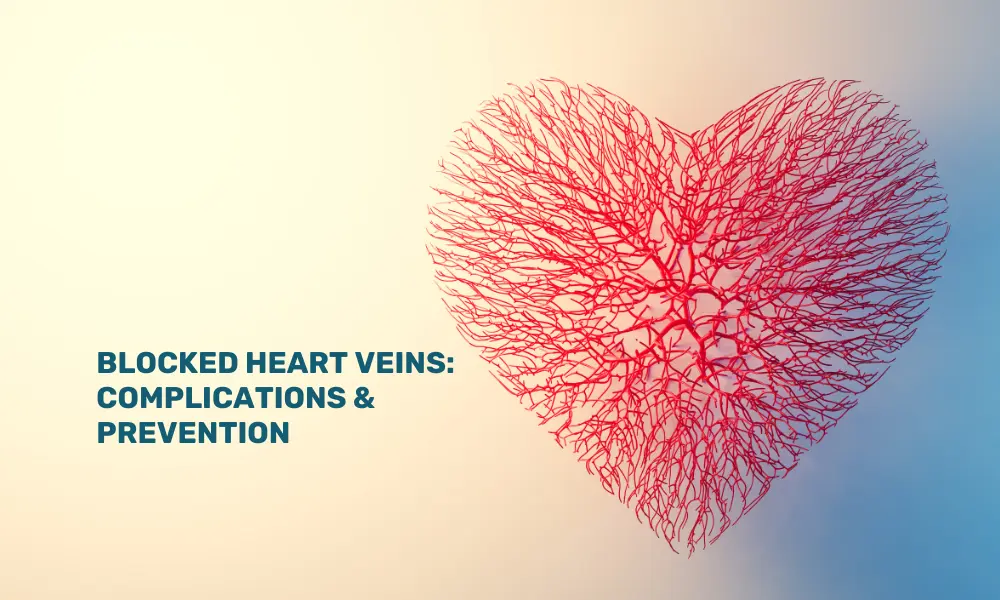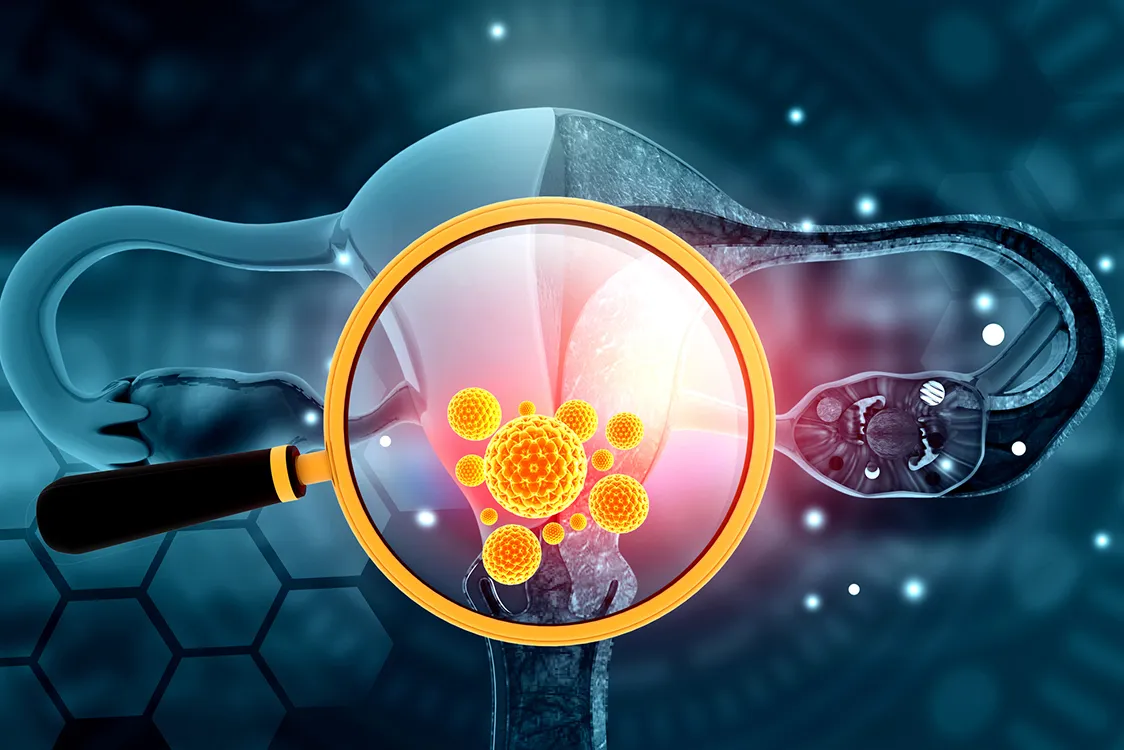Heart health is vital for our overall well-being, and blocked arteries can lead to serious conditions like heart disease or even a heart attack. Blocked heart veins or arteries, also known as coronary artery disease (CAD), is a heart-related condition that occurs when plaque starts to build up in the arteries supplying blood to the heart muscle. This reduces blood flow and oxygen to the heart, making it difficult for the human heart to function normally.
Causes of Blocked Heart Veins
-
High cholesterol levels
-
High blood sugar
-
High blood pressure
-
Cigarette smoking
-
Genetic Traits
Early Warning Signs of Blocked Heart Veins
Recognising the early warning signs can make all the difference in preventing severe complications. When our heart arteries or blood vessels are blocked, it can also disrupt the blood flow and oxygen supply to the heart, leading to life-threatening conditions. Early detection is key to effective treatment.
1. Calf pain while walking
Calf pain could be a sign of a clogged artery in that leg, especially when it worsens with walking and improves when the individual rests. This is because our muscles demand less oxygen when we are at rest, allowing blood flow to improve. Pain caused by insufficient blood flow may feel like a cramping or sore sensation, as if one had just performed heavy exercise the day before. One leg usually feels worse than the other, but both legs could be affected equally.
2. Smokers’ Symptoms
The chemicals in tobacco damage the structure and function of blood vessels, as well as the function of the heart. This damage increases an individual’s risk of atherosclerosis. In fact, the physiological damage from chronic smoking and signs of clogged arteries go hand in hand. The symptoms of blocked heart veins are the same, including chest pain, pressure, or discomfort with exertion (not necessarily limited to the left side), shortness of breath with exertion, or exertional discomfort in the jaw or arms. If an individual is a smoker and experiences these symptoms, there is a high potential that their arteries are quietly building plaque, too. That is why one of the best things one can do to decrease one’s CHD risk is to quit smoking.
3. Lower back pain
Your lower back pain might not be just a sign of aging muscles. It may be the first part of the body to accumulate plaque. When clogged arteries cause insufficient blood flow to the spine, the spinal discs weaken and become inflamed, and the lumbar discs (those in the lower back) are particularly affected. Lumbar disc degeneration and inflammation can cause lower back pain on their own. Still, it also increases the risk of developing a herniated disc, a tendon, or a muscle tear.
4. Tight jaw
A tight jaw occurs more frequently in women, but men should also be aware of it. Aches and pains in the jaw and neck are common symptoms of angina, a discomfort that results from poor blood flow to part of the heart. The pain occurs because the vagus nerve (the main nerve that carries pain signals from the heart) is in constant contact with the neck, jaw, head, and left arm. Consult a doctor to determine if the jaw pain is the result of something benign, such as teeth grinding, or something that warrants concern.
Why Should Signs of Blocked Heart Veins Not Be Ignored?
If clogged arteries are not addressed, they can lead to a heart attack, heart failure, and even death in severe cases. Other health issues can also arise, depending on where a clogged artery is blocking blood flow in the body.
A blockage in the arteries that lead to the heart can trigger an irregular heartbeat, chest pain, or a heart attack—and in more severe cases, heart failure. In addition:
-
If a blood clot blocks blood flow to the brain, it may trigger a stroke.
-
If tissues do not receive enough oxygen-rich blood due to a clogged artery, this can cause tissue death, also known as gangrene.
-
A blood clot that narrows the arteries supplying blood to your kidneys can lead to chronic kidney disease.
How to Prevent Blocked Heart Veins?
Rather than treating the aftermath, we need to prevent blocked arteries from developing. Prevention is key!
The fundamental ways to prevent blocked heart veins include maintaining a healthy diet, controlling cholesterol levels, managing blood pressure, exercising regularly, addressing diabetes, reducing obesity, quitting smoking, and getting sufficient sleep. If you have a family history of heart disease at an early age, it is a good idea to meet with your physician to check these risk factors and work on them sooner rather than later, to make sure you get an early start.
Further, steps to prevent clogged arteries and promote good heart health include:
-
Eating a heart-healthy diet and limiting saturated fats, sugar, and processed foods
-
Indulging in at least 30 minutes of daily physical activity
-
Maintaining a healthy weight
-
Getting enough sleep
-
Managing your stress levels
-
Not smoking—and if you do, quit
-
Having your blood pressure, blood sugar, and cholesterol regularly checked—and if you are on medication, take them as prescribed by your doctor.
Disclaimer: This article is meant for informational purposes only and must not be considered a substitute for professional advice.





